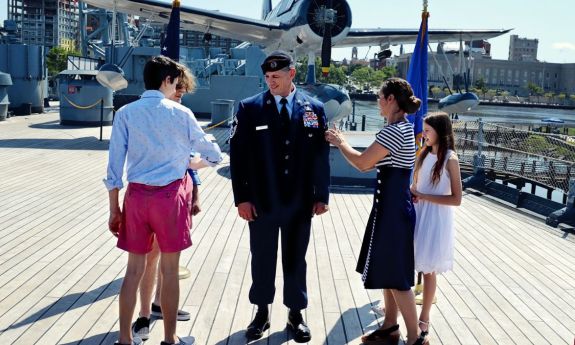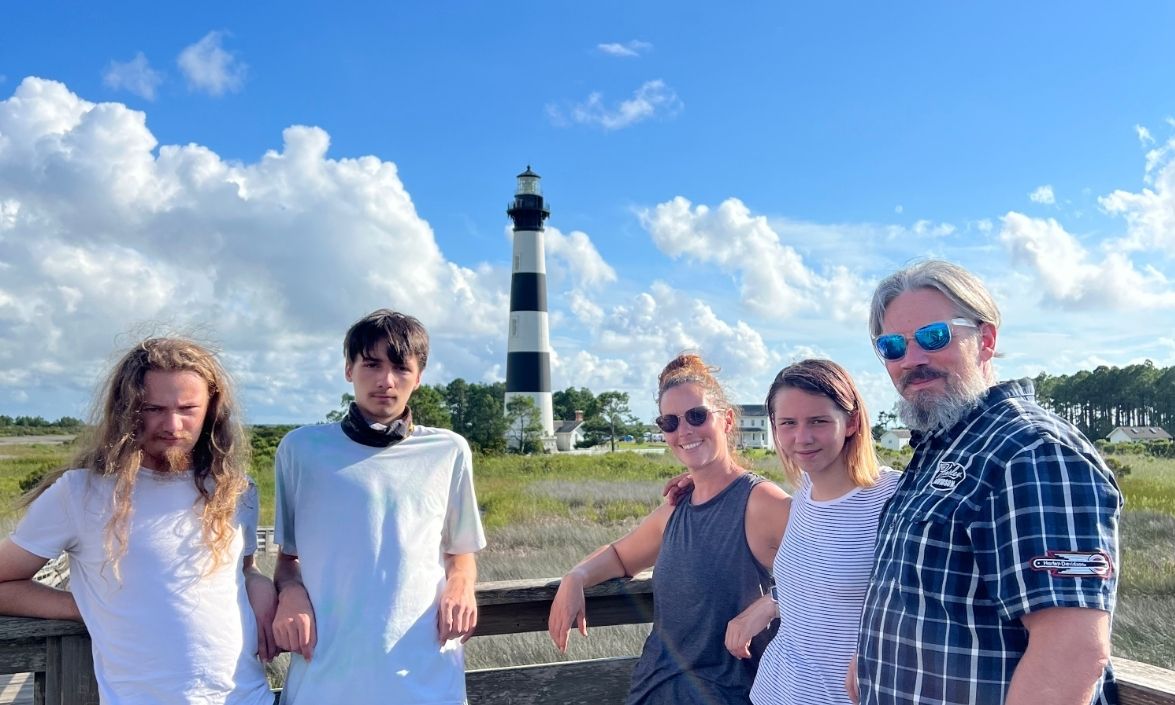Duke’s Children’s Law Clinic: More Than Legal Advice
A goal of the clinic is to empower families to take care of themselves when an attorney isn’t there

The clinic filed a complaint with the state Department of Public Instruction in addition to filing petitions for hearings to receive appropriate special education services for both of Stoltenberg’s sons – ultimately settling favorably.
“Working with the clinic was life changing,” said Stoltenberg.
The Children’s Law Clinic provides free legal advice, advocacy and representation to low-income, at-risk children. It is one of the law school’s 12 clinics where students work with supervising attorneys to gain real-world experience on cases in Durham or in nearby counties.
What you see (in a courtroom) isn’t the totality of what children are going through. There’s so much happening with them behind the scenes. It’s like an onion.
Crystal Grant
The Children’s Law Clinic works with families in 11 counties within a one-hour’s drive radius of Durham. “Our reach has expanded beyond Durham,” said Crystal Grant, director of the clinic, adding sometimes they negotiate or file complaints virtually.
The clinic works mostly by word of mouth, receiving referrals, for example, from Duke Health or through local pediatricians.
The Children’s Law Clinic’s work isn’t limited to legal advice. Grant is a social worker in addition to being an attorney, and she believes the two fields complement each other well. “Social work has a strong emphasis on systems,” said Grant. “What you see (in a courtroom) isn’t the totality of what children are going through. There’s so much happening with them behind the scenes, whether it’s divorce or poverty. It’s like an onion.”


To that end, Grant believes in empowering families to take care of themselves when an attorney isn’t there. For example, she leads virtual trainings for parents or providers on topics such as the rights they have as a parent of a special education student.
“If we can empower parents we can reach more kids,” said Grant.
Grant fell in love with the social justice mission while she was an undergrad, as a pre-law major, after discovering social work coursework. She decided to get graduate degrees in both fields.
One of her first jobs out of law school was as a clerk in a family court. She was intrigued by the juvenile justice cases and the judge who interacted with the children.
“The system can lack that human aspect and become mechanical, but this judge scheduled frequent check-ins with the kids and created a sense of accountability,” Grant said. “She tried to learn about the young people.”
Grant saw the judge as someone who extended grace to these kids and showed them how to redeem themselves.
“It left a profound impact on me,” said Grant.
Grant tries to follow that lead, integrating different systems, be it social or medical, into the work of the Children’s Law Clinic, ultimately influencing how Duke’s law students view their clients and engage with communities.
Morgan Smith, a third-year law student, is one of those students. Smith participated in a case involving a 10-year-old student, Noah, who was diagnosed with several disabilities; he had been having trouble in the classroom, with outbursts of anger, defiance of class rules and problems paying attention.
His mother had been trying to get him special education for two years and the school kept pushing back on his eligibility and need for services. “Rather than give him interventions,” said Smith, “the school punished him, which exacerbated his behavioral issues. … But when I met him, he was phenomenal and eager to learn.”
After finding violations by the district, Smith helped Noah qualify for the support he needed, with an individualized education program to include special instruction for behavior and reading.
Smith called the clinic work the most enjoyable of her entire law school experience and encourages clinic work for every student.
“You can feel so disconnected (while studying). But working on a real case gave the work a human aspect,” said Smith. “It was so fulfilling to connect with our client and his mother.”
Read more about the work of the Children’s Law Clinic and the other 11 clinics of the law school on the law school’s website.